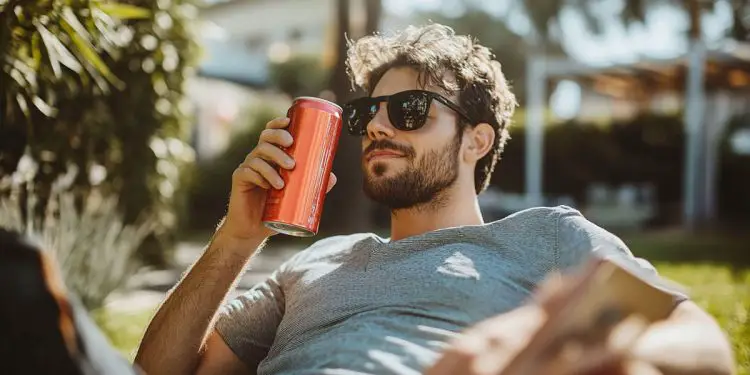Drinking the Future: The Quiet Revolution of CBD Beverages

In the ever-evolving landscape of wellness and alternative health products, cannabidiol (CBD) has emerged as a prominent player. From oils and tinctures to edibles and vapes, CBD’s versatility has led to a plethora of consumption methods. Among these, CBD-infused beverages and CBD vapes have garnered significant attention. As consumer preferences shift and the market matures, a pivotal question arises: Will CBD infused drinks surpass CBD vapes in popularity in the future?
The Rise of CBD-Infused Beverages
CBD-infused beverages have seen a remarkable surge in popularity, driven by consumer demand for functional and wellness-oriented products. These drinks, ranging from teas and coffees to sparkling waters and energy drinks, offer a convenient and socially acceptable way to consume CBD.
According to a report by Data Bridge Market Research, the global CBD-infused beverages market was valued at USD 4.36 billion in 2024 and is expected to reach USD 13.80 billion by 2032, growing at a compound annual growth rate (CAGR) of 15.5% during the forecast period. This growth is attributed to increasing consumer awareness of CBD’s potential health benefits, such as stress relief and relaxation, as well as the expansion of retail and e-commerce channels.
In Europe, the market is also experiencing significant growth. Pristine Market Insights reports that the European CBD-infused beverages market is witnessing a surge in demand, driven by increasing legislative support for CBD products and rising consumer interest in natural and wellness beverages.
The Popularity and Challenges of CBD Vapes
CBD vapes have been a popular method of consumption, offering rapid absorption and convenience. However, the vaping industry has faced challenges, including health concerns and regulatory scrutiny.
The Centers for Disease Control and Prevention (CDC) has reported cases of lung injuries associated with vaping, leading to increased public concern. Furthermore, the U.S. Food and Drug Administration (FDA) has been cautious in approving CBD products, citing the need for more research on their safety and efficacy.
These factors have contributed to a decline in the popularity of CBD vapes, as consumers seek safer and more socially acceptable alternatives.
Comparative Analysis: CBD-Infused Drinks vs. CBD Vapes
Consumer Preferences and Trends
The shift in consumer preferences towards health and wellness has favored CBD-infused beverages over vapes. Beverages are perceived as a more natural and less stigmatized method of consumption, aligning with the growing demand for functional foods and drinks.
According to a report by Grand View Research, the global cannabis beverages market size was valued at USD 1.16 billion in 2023 and is projected to grow at a CAGR of 19.2% from 2024 to 2030. This growth is indicative of the increasing consumer interest in cannabis-based wellness drinks and beverages.
Regulatory Landscape
Regulatory frameworks play a crucial role in shaping the CBD market. While the FDA has yet to establish comprehensive regulations for CBD products, the European Union is working towards streamlining approval processes and standardizing testing for purity and contaminants.
These developments are expected to enhance transparency and boost consumer confidence in product safety, further supporting the growth of CBD-infused beverages.
Market Accessibility and Distribution
CBD-infused beverages are becoming more accessible through both brick-and-mortar retail and online sales channels. Supermarkets, convenience stores, and specialty health retailers are increasingly stocking these products, responding to growing consumer interest. At the same time, e-commerce platforms and direct-to-consumer models are enabling brands to reach a broader audience while educating customers about CBD’s benefits.
In contrast, CBD vapes face distribution challenges due to regulatory restrictions and public health concerns, limiting their availability in mainstream retail outlets.
Conclusion
Considering the current trends and market dynamics, it is plausible that CBD drinks will become more popular than CBD vapes in the future. The growing consumer preference for health-conscious and socially acceptable products, coupled with regulatory developments and increased market accessibility, positions CBD-infused beverages for continued growth.
While CBD vapes may retain a niche market segment, the overall trajectory suggests a shift towards beverage consumption as the preferred method for CBD intake.










